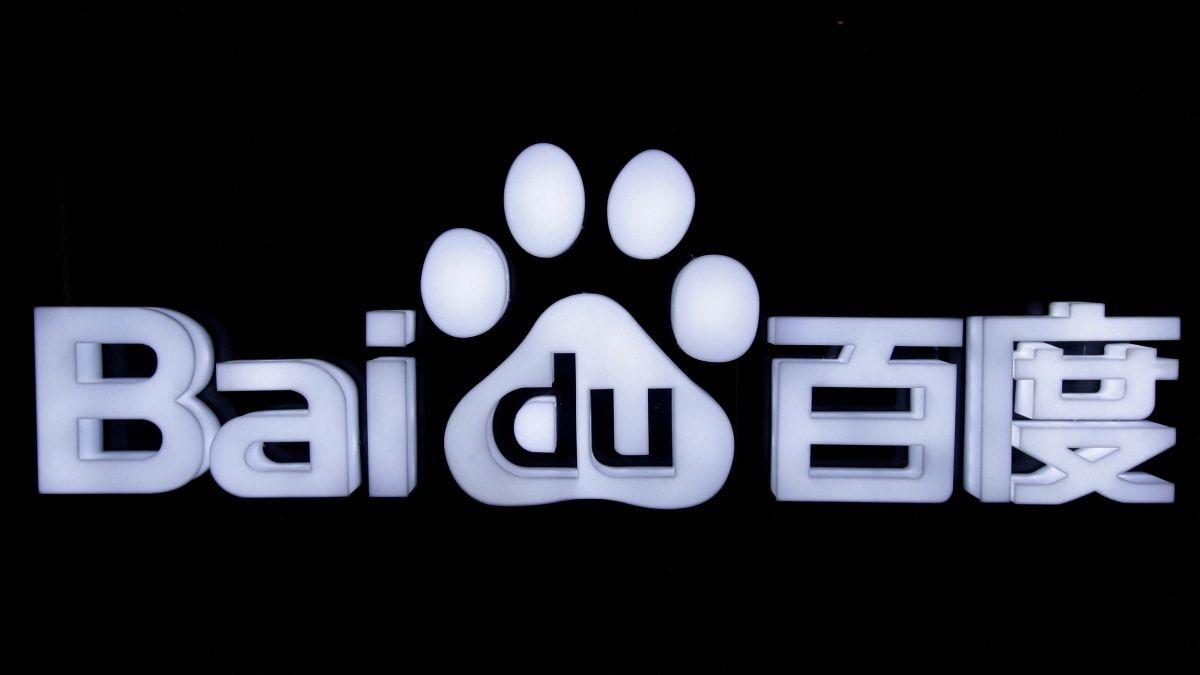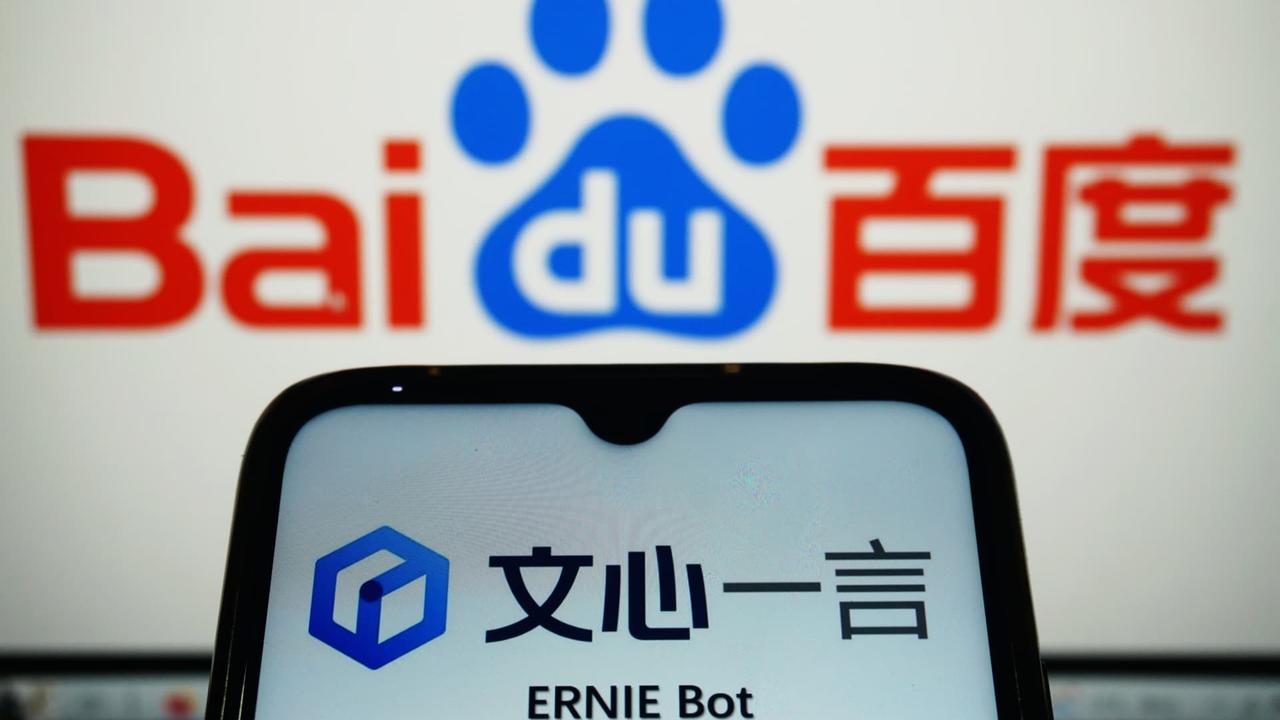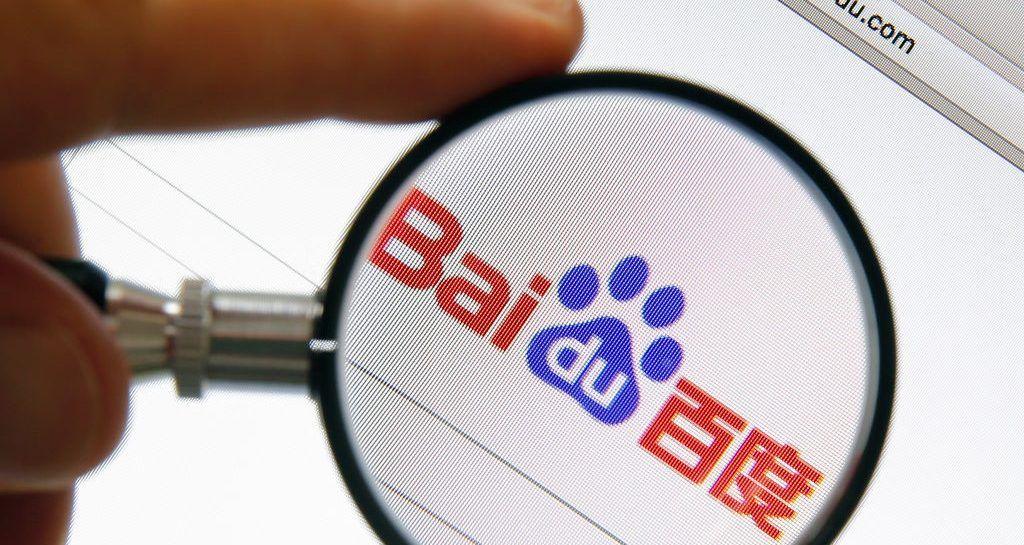Baidu's Ernie Goes Open-Source: A Game-Changer in the Global AI Race
6 Sources
6 Sources
[1]
China's biggest public AI drop since DeepSeek, Baidu's Ernie, is about to hit the market
ZHEJIANG, CHINA - MARCH 16 2023: A view of the logo of ERNIE Bot, an AI chatbot service developed by Chinese search engine Baidu. On Monday, Chinese technology giant Baidu plans to make its Ernie generative AI large language model open source, a move by China's tech sector that could be its biggest in the AI race since the emergence of DeepSeek. A Baidu spokesman confirmed the plan and said the open sourcing will be a gradual roll-out. Will it be a shock to the market on the order of DeepSeek? That's a question which divides AI experts. One big change is that Baidu wasn't always on the open source bandwagon. "Baidu has always been very supportive of its proprietary business model and was vocal against open-source, but disruptors like DeepSeek have proven that open-source models can be as competitive and reliable as proprietary ones," Lian Jye Su, chief analyst with technology research and advisory group Omdia, previously told CNBC. Now that Baidu has made the decision to open source, even if it isn't a DeepSeek moment, it is an important one for the global AI race. "This isn't just a China story. Every time a major lab open-sources a powerful model, it raises the bar for the entire industry," said Sean Ren, associate professor of computer science at the University of Southern California and Samsung's AI Researcher of the Year. Ren says Baidu's move puts pressure on closed providers like OpenAI and Anthropic to justify gated APIs and premium pricing. "While most consumers don't care whether a model's code is open-sourced, they do care about lower costs, better performance, and support for their language or region. Those benefits often come from open models, which give developers and researchers more freedom to iterate, customize, and deploy faster," Ren said. Other industry experts view an open source Ernie as potentially being even more disruptive to both U.S. and Chinese competitors when it comes to the price equation. "Baidu just threw a Molotov into the AI world," said Alec Strasmore, founder of AI advisory Epic Loot. "OpenAI, Anthropic, DeepSeek, all these guys who thought they were selling top-notch champagne are about to realize that Baidu will be giving away something just as powerful," Strasmore said, comparing Baidu's move to Costco creating Kirkland. He said the message to all of the world's startups is "stop paying top dollar." "This isn't a competition; it's a declaration of war on pricing," Strasmore said. Baidu said in March that its recent ERNIE X1 model delivers performance on par with DeepSeek's R1 "at only half the price." Baidu's CEO, Robin Li, hinted earlier this year that the roll-out would help developers worldwide in AI development. "Our releases aim to empower developers to build the best applications -- without having to worry about model capability, costs, or development tools," Li said in a speech to developers in China in April. In the least, it's one more moment in time when investors have to analyze how cost dynamics in AI model access are changing quickly, and what it means that more applications can be built on top of "these dirt cheap models," Strasmore said. "Baidu is going to be seeding the world with Chinese AI models," he added.
[2]
Ready to talk to Ernie? DeepSeek's latest rival from Baidu is here
Chinese search giant Baidu, known for its search technology, has made its Ernie large language model open source as of June 30. It's a shot across the bow of DeepSeek, China's premier LLM, which has seen unprecedented success since it debuted in December 2024. It's also a big change of approach for Baidu. The company had previously been vocal in its defiance of moving to open source, working to keep its business model proprietary. DeepSeek and other international rivals like ChatGPT have proven that being open source can lead to a more impressive LLMs, and still be lucrative. While the change could not be as monumental as the arrival of DeepSeek, it could have major ramifications for AI. "This isn't just a China story," Sean Ren, associate professor of computer science at the University of Southern California and Samsung's AI Researcher of the Year told CNBC. "Every time a major lab open-sources a powerful model, it raises the bar for the entire industry." "While most consumers don't care whether a model's code is open-sourced, they do care about lower costs, better performance, and support for their language or region," Ren added. "Those benefits often come from open models, which give developers and researchers more freedom to iterate, customize, and deploy faster." Baidu's move to open source could also help provide more competition to its aforementioned rivals. If Baidu's model is able to offer comparative features to rivals, but at a lower price, it could be seen as a moment that reverberates through the industry. Earlier this year, Sam Altman, OpenAI's CEO, discussed open source models on Reddit. "While OpenAI has open-sourced models in the past, the company has generally favored a proprietary, closed source development approach," Altman explained. "[I personally think we need to] figure out a different open source strategy," he added. "Not everyone at OpenAI shares this view, and it's also not our current highest priority ... We will produce better models [going forward], but we will maintain less of a lead than we did in previous years." Expect Baidu's model to be under plenty of scrutiny, too. This week, Germany moved to ban DeepSeek for transferring data to China. In AI, the term open-source refers to systems where the code and training data is made publicly available. This is becoming more common recently, with the likes of OpenAI, Deepseek and Gemini all releasing open-source versions of their products. With an open-source AI model, the public can inspect, adapt and distribute the code in their own way. This speeds up the process for smaller companies who aren't able to put in the huge amount of work at the start that is needed.
[3]
China's Baidu declares war on OpenAI and others by open-sourcing Ernie chatbot - SiliconANGLE
China's Baidu declares war on OpenAI and others by open-sourcing Ernie chatbot Chinese search engine giant Baidu Inc. today announced that it's open-sourcing its powerful generative artificial intelligence chatbot Ernie, in a move that experts say will nudge the industry away from a battle over performance and into a price war. The company, which is often said to be "China's Google" due to its dominance of the domestic search market, confirmed it will gradually roll out the open source version of Ernie starting today. Analysts say Baidu is making a direct challenge to western competitors such as OpenAI and Anthropic PBC, commoditizing high-performance AI to undermine their expensive licensing fees. It marks a dramatic change of policy for Baidu, which has previously always been a staunch supporter of proprietary, closed systems. By making the code of its flagship large language model available to everyone, it's hoping to achieve more widespread adoption and grow a thriving developer ecosystem around the technology, which could ultimately become more profitable than charging for access to its application programming interfaces. Baidu has rapidly escalated its shift to open source tech this year, making a series of aggressive moves that aim to undercut its rivals' pricing. In February, it announced it's making Ernie available for free, dropping a monthly subscription model in order to grab more users. Then in March, Baidu launched Ernie 4.5 and its X1 reasoning model, with prices much lower than any of its rivals. It followed later that month by releasing "Turbo" versions of both models and slashing its already low prices by 80%. Omdia analyst Lian Jye Su told CNBC that Baidu's move is a major surprise, because the company has traditionally followed a proprietary business model. "But disruptors like DeepSeek have proven that open-source models can be as competitive and reliable as proprietary ones," he said. Badiu may also be trying to take advantage of the substantial headwinds faced by DeepSeek Ltd, which has reportedly been forced to delay the release of its next-generation R2 model. Last week, The Information reported that the company is struggling to obtain enough of Nvidia Corp.'s high-end graphics processing units to finish training R2, as a result of fresh U.S. sanctions on chip exports to China. At present, Ernie has around 23 million monthly active users, which puts it a long way behind the 83 million monthly active users of Duobao, a rival chatbot created by TikTok's parent company ByteDance Ltd. Meanwhile, in terms of the developer market, Baidu's Ernie API has an 18% market share, trailing DeepSeek's 34% share. Just like in the U.S., the Chinese AI market has erupted into fierce competition, with other players including the e-commerce giant Alibaba Holdings Ltd. and the gaming developer Tencent Holdings Ltd., plus a number of startups, known as the "AI tigers". They include Zhipu AI Ltd., which has built a rival to ChatGPT and been identified as a key challenger by OpenAI, and MiniMax, which primarily focuses on generative AI video models. Both startups are thought to be preparing for initial public offerings on the Hong Kong stock exchange, seeking foreign capital. Another challenger is Baichuan Intelligent Technology Co. Ltd., which has previously released models that surpassed OpenAI's and Anthropic's on various benchmarks. Baidu's move will likely increase the pressure on U.S. AI firms, even if it still struggles with low brand recognition outside its home nation. OpenAI Chief Executive Sam Altman acknowledged the threat posed to his company in January, stating on Reddit that the company needs to figure out a new open source strategy as it's unlikely to maintain a performance lead going forward. He has since announced plans to release an "open-weights" model in the near future. Alec Strasmore of the AI advisory firm Epic Loot Inc. told CNBC said Baidu has essentially declared war on the rest of the industry, sending a message to the world's startups that they no longer need to pay top dollar to access powerful AI. "This isn't a competition, it's a declaration of war on pricing," he said. By going down the open source route, Baidu may also be able to sidestep U.S. sanctions on China, as it will be able to leverage the expertise of AI contributors from all over the world. The U.S. has previously raised concerns that Chinese firms might attempt such a strategy, and some lawmakers have even labeled open-source AI models as a "security risk". In a report earlier this year, U.S. House Select Committee on the CCP Chairman John Moolenaar accused DeepSeek of being a "weapon" of the Chinese Communist Party, saying it was designed to spy on U.S. citizens and steal its technology.
[4]
Baidu's Ernie chatbot goes open source
Baidu announced its Ernie chatbot will become open-source, initiating a shift in the AI industry towards price competition. Baidu, a dominant force in China's search market, confirmed the gradual release of Ernie's open-source version, beginning immediately. This strategic change moves away from Baidu's previous support for proprietary, closed systems. By making its flagship large language model's code publicly accessible, Baidu aims to achieve broader adoption and cultivate a robust developer ecosystem around the technology, potentially surpassing the profitability of API access fees. Baidu has accelerated its pivot to open-source technology throughout the current year, implementing aggressive tactics to undercut competitor pricing. In February, Baidu made Ernie available without charge, discontinuing its monthly subscription model to attract more users. In March, Baidu launched Ernie 4.5 and its X1 reasoning model, priced significantly lower than rival offerings. Later that month, "Turbo" versions of both models were released, accompanied by an 80% reduction in their existing prices. Omdia analyst Lian Jye Su told CNBC that Baidu's decision represents a significant surprise due to the company's historical adherence to a proprietary business model. Su noted that "disruptors like DeepSeek have proven that open-source models can be as competitive and reliable as proprietary ones." Baidu's actions may also capitalize on challenges faced by DeepSeek Ltd., which has reportedly postponed the release of its next-generation R2 model. The Information reported last week that DeepSeek is encountering difficulties in acquiring sufficient Nvidia Corp. high-end graphics processing units to complete R2's training, a consequence of recent U.S. sanctions on chip exports to China. Ernie currently registers approximately 23 million monthly active users, considerably fewer than Duobao, a rival chatbot developed by ByteDance Ltd., which has 83 million monthly active users. In the developer market, Baidu's Ernie API holds an 18% market share, while DeepSeek maintains a 34% share. The Chinese AI market experiences intense competition, involving entities such as Alibaba Holdings Ltd. and Tencent Holdings Ltd., alongside numerous startups termed "AI tigers." These include Zhipu AI Ltd., which has developed a competitor to ChatGPT and is recognized as a key challenger by OpenAI, and MiniMax, primarily focused on generative AI video models. Both Zhipu AI Ltd. and MiniMax are reportedly preparing for initial public offerings on the Hong Kong stock exchange to secure foreign capital. Another competitor, Baichuan Intelligent Technology Co. Ltd., has previously released models that exceeded OpenAI's and Anthropic's performance on various benchmarks. Baidu's strategy is expected to intensify pressure on U.S. AI firms, despite its limited brand recognition outside China. OpenAI Chief Executive Sam Altman acknowledged the threat to his company in January. He stated on Reddit that OpenAI needs to formulate a new open-source strategy, anticipating that maintaining a performance lead will become increasingly difficult. Altman has since announced plans to release an "open-weights" model in the near future. Alec Strasmore of the AI advisory firm Epic Loot Inc. commented that Baidu has initiated a pricing war within the industry, signaling to startups globally that accessing powerful AI no longer necessitates premium costs. Strasmore characterized the situation as "a declaration of war on pricing." Adopting an open-source model may also enable Baidu to circumvent U.S. sanctions on China by leveraging the expertise of AI contributors worldwide. The U.S. has previously expressed concerns that Chinese firms might pursue such strategies, and some lawmakers have designated open-source AI models as a "security risk." Earlier this year, U.S. House Select Committee on the CCP Chairman John Moolenaar accused DeepSeek of functioning as a "weapon" of the Chinese Communist Party, asserting its design facilitated surveillance of U.S. citizens and technology theft.
[5]
Baidu's Ernie 4.5 Series AI Models Are Now Open-Source
Each Ernie 4.5 AI model comes with the Apache 2.0 license Eight of the open-source models are Mixture-of-Experts (MoE) Baidu made the Ernie chatbot free to use in April Baidu released the Ernie 4.5 series of artificial intelligence (AI) models in open-source on Monday. The Chinese tech giant had previously said that it would make its proprietary large language models (LLMs) available to the open community on July 31. It has now released 10 different variants of the series, with each of the models built on Mixture-of-Experts (MoE) architecture. Alongside the models, the company has also released multi-hardware development toolkits for Ernie 4.5 in open source. In a post on X (formerly known as Twitter), the Chinese tech giant announced the release of the 10 open-source Ernie 4.5 AI models. Four of them are multimodal vision-language models, eight are MoE models, and two are thinking or reasoning models. Additionally, the list also includes five post-trained models, while others are pre-trained. These models can now be downloaded from either the company's Hugging Face listing or from its GitHub listing. In a blog post, Baidu said that the MoE models feature a total of 47 billion parameters, with three billion of them being active at a time. The largest models among the 10 variant features 424 billion parameters. All of them are trained using the PaddlePaddle deep learning framework. Based on internal testing, the company claimed the Ernie-4.5-300B-A47B-Base model surpasses DeepSeek-V3-671B-A37B-Base on 22 out of 28 benchmarks. Similarly, it claimed that the Ernie-4.5-21B-A3B-Base outperforms Qwen3-30B-A3B-Base on multiple mathematics and reasoning benchmarks despite having 30 percent fewer parameters. Baidu also revealed its training methods on the model pages. The company used a heterogeneous MoE structure in the pre-training process and scaled the models using techniques such as intra-node expert parallelism, memory-efficient pipeline scheduling, FP8 mixed-precision training, and a fine-grained recomputation method. Apart from the models, Baidu has also made ErnieKit available to the open community. It is a development toolkit for the Ernie 4.5 series models. With this, developers can perform pre-training, supervised fine-tuning (SFT), Low-Rank Adaptation (LoRA), and other customisation techniques. Notably, all the models are available under the permissive Apache 2.0 licence, which allows for both academic and commercial usage.
[6]
Baidu Could Create the 2nd DeepSeek Moment By Making Ernie Open-Source
The exact details of the AI model to be open-sourced are not known Baidu, the Chinese tech giant, is making its Ernie artificial intelligence (AI) model open-source on Monday. The company announced the move in February, and has already made its chatbot free to use. This is being viewed as a watershed moment in China's AI space, as this is the first time a major AI player has decided to release its proprietary technology to the open community. As per reports, experts believe Baidu's decision could have a similar impact on the global AI market as DeepSeek-R1 did when it first emerged. On February 14, Baidu confirmed that its flagship large language model (LLM) Ernie would be made available to the open community. The WeChat post mentioned that the company would open-source its "next generation of AI model," which many believe to be Ernie 5. Notably, in March, the company released Ernie 4.5 foundation model, alongside its first reasoning model dubbed Ernie X1. While the company is shifting its strategy to open-source, it is currently not known whether the AI models will be fully open-sourced or partially. The former refers to when a company or a firm releases the model weights, training cookbook, and details about the architecture. This enables developers to not only freely use the models but also modify, replicate, and build upon them. However, in the latter's case, only the model weights are made open, so the company still holds the other details private. With this, developers can only use and fine-tune the model, but cannot replicate it. An example of a fully open-source AI model is Mistral NeMo 12B, while one with just open weights is Meta's Llama 3. Experts believe the move could have a positive impact on democratising AI across the globe. Sean Ren, associate professor of computer science at the University of Southern California and Samsung's AI Researcher of the Year, told CNBC, "This isn't just a China story. Every time a major lab open-sources a powerful model, it raises the bar for the entire industry." Interestingly, last time a Chinese open-source AI model was released (DeepSeek-R1), it shot down the stock prices of major AI players, and had a net negative impact on most US-based companies.
Share
Share
Copy Link
Baidu, China's tech giant, open-sources its Ernie AI model, potentially disrupting the global AI market with implications for pricing, competition, and technological advancement.
Baidu's Strategic Shift to Open-Source
In a move that could reshape the global AI landscape, Chinese tech giant Baidu has announced the open-sourcing of its Ernie generative AI large language model
1
2
. This decision marks a significant departure from Baidu's previous stance on proprietary technology and positions the company as a formidable competitor in the international AI market1
.
Source: Gadgets 360
Implications for the AI Industry
The open-sourcing of Ernie is expected to have far-reaching consequences for the AI industry:
-
Price Pressure: Experts predict that Baidu's move could initiate a price war in the AI sector. Alec Strasmore, founder of AI advisory Epic Loot, described it as "a declaration of war on pricing"
1
3
. This could force competitors like OpenAI and Anthropic to justify their premium pricing and gated APIs. -
Accelerated Development: Sean Ren, associate professor at the University of Southern California, noted that open-sourcing powerful models "raises the bar for the entire industry"
1
. This could lead to faster iterations, customizations, and deployments of AI technologies. -
Wider Accessibility: By making Ernie open-source, Baidu aims to empower developers worldwide to build better applications without concerns about model capability, costs, or development tools
1
.
Ernie's Capabilities and Competitive Edge
Baidu claims that its recent ERNIE X1 model delivers performance comparable to DeepSeek's R1 "at only half the price"
1
. The company has released 10 different variants of the Ernie 4.5 series, including multimodal vision-language models, Mixture-of-Experts (MoE) models, and thinking or reasoning models5
.According to Baidu's internal testing, some Ernie models outperform competitors on various benchmarks:
- The Ernie-4.5-300B-A47B-Base model reportedly surpasses DeepSeek-V3-671B-A37B-Base on 22 out of 28 benchmarks
5
. - The Ernie-4.5-21B-A3B-Base is claimed to outperform Qwen3-30B-A3B-Base on multiple mathematics and reasoning benchmarks, despite having 30% fewer parameters
5
.

Source: CNBC
Related Stories
Global Competition and Market Dynamics
Baidu's decision to open-source Ernie comes at a time of intense competition in the AI market, both in China and globally:
-
Chinese AI Landscape: Baidu faces stiff competition from other Chinese tech giants and startups, including ByteDance's Duobao chatbot, which boasts 83 million monthly active users compared to Ernie's 23 million
3
. -
International Implications: The move puts pressure on Western competitors like OpenAI and Anthropic. OpenAI's CEO, Sam Altman, has acknowledged the need for a new open-source strategy in response to the changing landscape
3
. -
Regulatory Concerns: Some U.S. lawmakers have expressed concerns about open-source AI models from Chinese companies, labeling them as potential security risks
3
.
Technical Details and Accessibility

Source: Dataconomy
Baidu has made the Ernie 4.5 models available under the Apache 2.0 license, allowing for both academic and commercial usage
5
. The company has also released ErnieKit, a development toolkit that enables developers to perform pre-training, supervised fine-tuning, and other customization techniques5
.The largest Ernie model features 424 billion parameters, while the MoE models have 47 billion parameters with three billion active at a time
5
. Baidu used advanced training methods, including heterogeneous MoE structure and techniques like intra-node expert parallelism and FP8 mixed-precision training5
.As the AI race continues to evolve, Baidu's open-sourcing of Ernie represents a significant milestone that could accelerate innovation, reduce costs, and potentially reshape the competitive landscape of the global AI industry.
References
Summarized by
Navi
[3]
[4]
[5]
Related Stories
Baidu Shifts AI Strategy: ERNIE Bot Goes Free, Open-Source Model Announced
12 Feb 2025•Technology

Baidu to Launch Upgraded AI Model Ernie 4.5 in Mid-March, Shifting to Open-Source Strategy
27 Feb 2025•Technology

Baidu Launches Advanced AI Models ERNIE 4.5 and X1, Challenging Global Competitors
16 Mar 2025•Technology

Recent Highlights
1
Google Gemini 3.1 Pro doubles reasoning score, beats rivals in key AI benchmarks
Technology

2
ByteDance's Seedance 2.0 AI video generator triggers copyright infringement battle with Hollywood
Policy and Regulation

3
ChatGPT cracks decades-old gluon amplitude puzzle, marking AI's first major theoretical physics win
Science and Research





